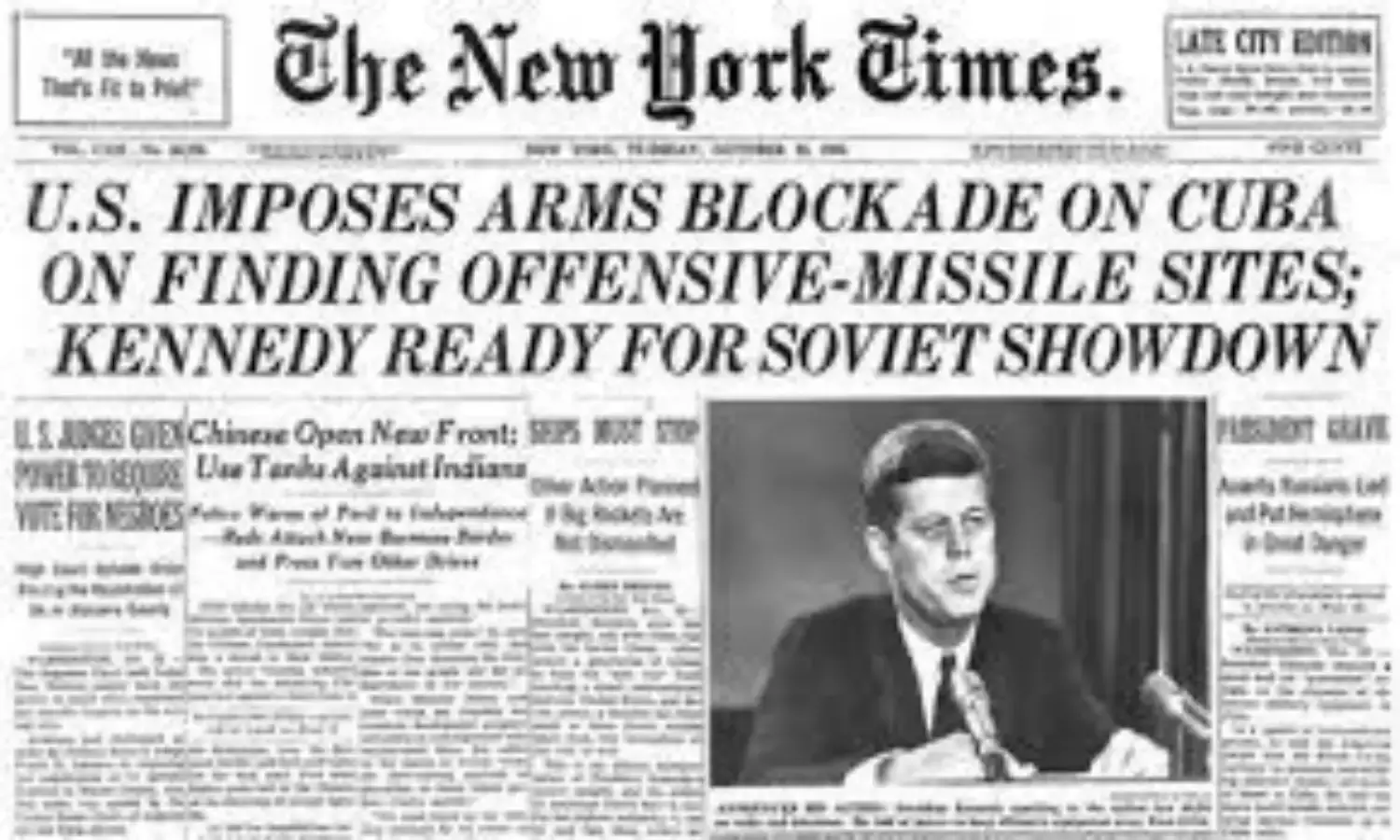Russia and Ukraine Should Announce a Ceasefire ASAP
The possibility and risk of nuclear warfare risk is widely discussed today

In October-November this year the world observes the 60th anniversary of the Cuban Missile Crisis of 1962, when the world had come closest to the exchange of nuclear weapons. Now in October 2022 we again have a situation where the risk of use of nuclear weapons is increasing. This risk is more widely discussed today than ever before in recent times.
In fact there are several factors that make the situation now more dangerous and complex than before. First, the leaders on two sides, Kennedy and Khrushchev at that time, were more committed to finding a peaceful solution. President John F. Kennedy made a particularly important contribution by sidelining some hawkish security advisers.
Second, serious as these were, the issues then were not so difficult to resolve. Once the political will for de-escalation and peace was there on the part of the two leaders, it was not so difficult to find a solution that could satisfy both the United States of America and the Soviet Union while also addressing Cuban concerns.
This is not the situation today after all that has happened in the last seven months of the Ukraine conflict. It was much easier to resolve this conflict in March when the first big peace efforts were made but were frustrated by the USA and United Kingdom. Today the terms of an agreement that can be accepted by all sides aren't clear at all.
Last but not the least, the political will to resolve the conflict quickly does not appear to be there. This is particularly true in the case of the USA whose foreign policy appears to be becoming more and more aggressive, related to a complex of factors.
Meanwhile, there are increasing signs that the Ukraine conflict can spiral out of control to become a more direct conflict between the USA and Russia. This can happen in a number of ways.
The sabotage of the Nord Stream pipelines, which appears to have been caused by the USA with or without other partners, has further increased bitterness and escalation. This is a costly act of sabotage, affecting a much valued project of critical importance. What if one act of sabotage is retaliated by another act of sabotage? Where will this end?
Therefore it is important to assert that both invasions should end as early as possible. It may be asked, 'what do you mean by both invasions?' Yes, there have in fact been two invasions of Ukraine. The first one by Russia which started in February 2022 has been widely discussed.
However, there has also been an invasion by the USA which started much earlier. An invasion aimed at using Ukraine and Ukrainians merely to serve the strategic aim of the USA to relentlessly harm Russia. Guided by this aim, the USA in fact worked relentlessly to create such conditions, including civil war type situations in parts of Ukraine, that were most likely to provoke Russia into attacking Ukraine, ignoring all the devastation likely to be caused.
Today, it is important to demand that both invasions should end as early as possible. The conflict should not escalate. It should also not become a wider conflict. The risks and the distress involved with both these interrelated possibilities are simply too great.
Russia and Ukraine should announce a ceasefire as soon as possible. This can be done on the basis of limited agreements while bigger and more contentious issues can be resolved later in conditions of greater stability, peace and goodwill.
All countries that can afford to do so should make generous donations to start a rapid process of reconstruction and relief in Ukraine, also enabling the return of all those displaced persons who are keen to return home. The future of Ukraine should be decided in democratic ways by the people of Ukraine, and not under the dictates and pressures of any outside power.
All this is highly desirable, but of course it is easier wished than achieved. The aggressive foreign policy of the USA with all its uncertainty and irrationality is now emerging as the biggest obstacle to early peace. Where will this ultimately take us and what will be the shattering consequences for world peace?
In such a situation a big responsibility has evolved on the peace activists of the world, most particularly of the USA and Western countries, and in addition senior diplomats and foreign policy experts of these countries in particular. They must speak in a strong and united voice for prioritising peace above all narrow interests, and for ensuring that the Ukraine conflict does not drift towards a wider war and a nuclear war.
The Russian leadership should also be increasingly engaged by its friends, the peace movement and world leaders to convince them that the option of nuclear weapons should be avoided entirely. All those who can make a difference to check escalation and to bring peace should contribute their best efforts for this.
Bharat Dogra is Honorary Convener, Campaign to Save Earth Now.



